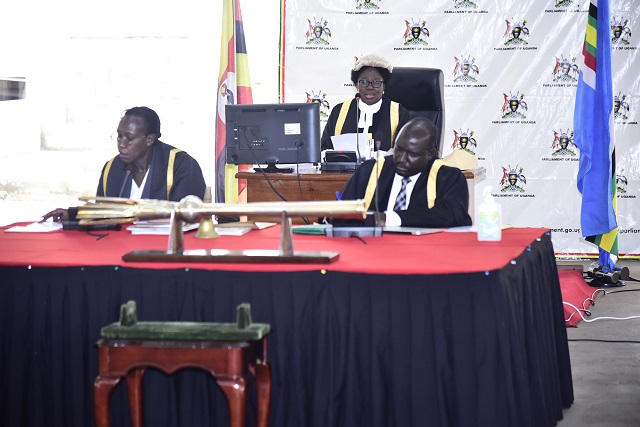
Kampala, Uganda | THE INDEPENDENT | A joint team comprising members from the finance and gender committees in parliament has rejected proposed direct lending by the National Social Security Fund (NSSF) to the government. The committee members say that this is intended to avoid abuse of member’s funds and conflict of interest.
This is according to the main committee report on the National Social Security Fund (NSSF) Amendment Bill, 2019 presented before Parliament on Wednesday by the vice Chairperson of the Parliament’s Committee on Gender Agnes Kunihira.
First presented before Parliament in August 2019, the Bill has generated controversy on issues regarding
the mid-term access of funds, direct lending to government and whether the fund should revert to the ministry of Finance. The fund is currently managed by the Ministry of Gender, under whose docket, the department of labour falls.
But the committees observed that NSSF already lends to the government and other entities using instruments prescribed in the URBRA Act & Regulations including, among others; Treasury Bills, Bonds and government securities. The members added that direct lending would instead contravene section 68 of the Uganda Retirement Benefits Regulatory Authority (URBRA) Act,2011 which prohibits direct lending which is not through securities sold on the open market.
The bill had also suggested that members aged above 45 and have saved for at least 10 years, be allowed to access their voluntary benefits. The report notes that the purpose of mid-term access is to provide for additional benefits and relief to members of the Fund before they reach the age prescribed by the law. Savings can only be accessed when a saver clocks 55, according to the current law.
The members recommended that instead, the provision should apply to all contributing members of the Fund, including mandatory contributors since benefits are primarily intended to better the lives of all members of the Fund.
The MPs also recommended that a person with a disability who lacks gainful employment or fails to generate income, and unable to make contributions to the Fund for a period of not less than one year should access up to 75 per cent of their contributions upon application.
However, in his minority report, Bulamogi County MP Kenneth Lubogo said that where a member loses his or her employment and remains unemployed for a period of not less than three years, the member shall upon application be entitled to 40 per cent of the balance on the member’s account.
He says that this is to uphold the right to life by allowing members who lose employment and remain unemployed for a long period and are in dire conditions to receive part of their social security as a relief to be able to sustain life by affording some basics of life.
The Joint-Committee also recommended that the fund should still be supervised by both the Ministry of Finance and the Ministry of Gender, Labour and Social Development. But it advised that the roles of the two Ministers responsible for social protection and finance are separated in the Bill and in line with their sector-specific mandate.
Speaker Rebecca Kadaga deferred debate on the Bill to Thursday to allow ample time to MPs to read both reports.
Different workers leaders have since the COVID-19 pandemic petitioned the office of the Speaker raising concern on the delayed consideration of the Bill which they said would enable workers to get some benefits like unemployment benefits, relief funds and others for those facing financial hardships occasioned by the Covid-19 Lockdown.
********
URN
The post Joint committee rejects NSSF direct lending to gov’t appeared first on The Independent Uganda:.
from The Independent Uganda: https://ift.tt/3izysi5
0 Comments